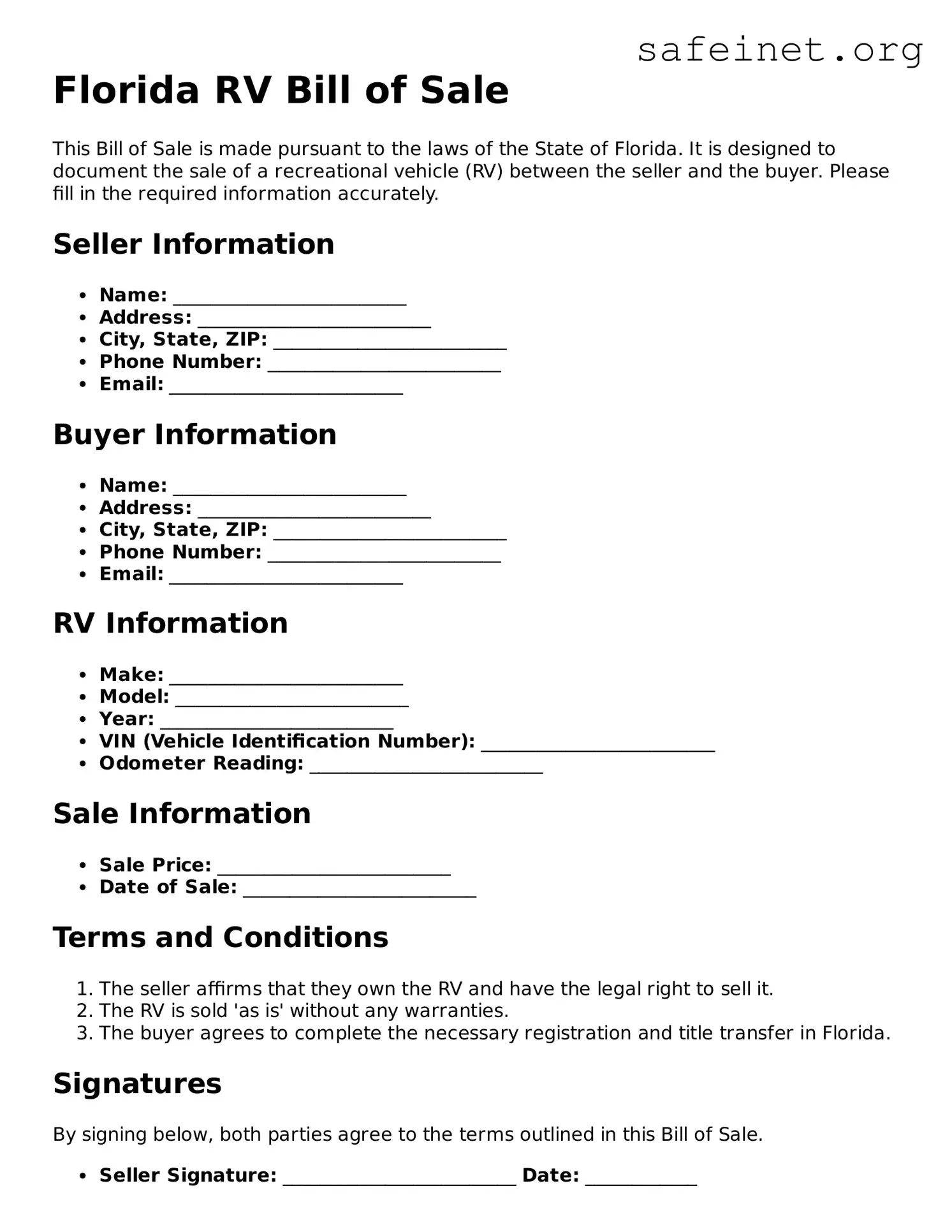What is the Florida RV Bill of Sale form?
The Florida RV Bill of Sale form is a legal document used to transfer ownership of a recreational vehicle (RV) from one party to another. It provides all necessary details about the transaction, including vehicle specifics like make, model, year, vehicle identification number (VIN), and the purchase price. This document is essential for both buyers and sellers to ensure clear ownership transfer and for future registration purposes.
Why is an RV Bill of Sale important?
An RV Bill of Sale is important as it protects both parties in the transaction. For the seller, it serves as proof that they no longer own the RV. For the buyer, it provides evidence of purchase and can be used to register the vehicle with the state. Additionally, it can sometimes serve as a receipt for tax purposes.
Do I need a notarized Bill of Sale in Florida?
In Florida, it is not mandatory for the Bill of Sale to be notarized. However, notarization can add an extra layer of security and legitimacy to the document. It may be beneficial, especially in disputes, to have a notarized Bill of Sale. Check local laws or consult an expert if you're unsure.
What information should be included in the Bill of Sale?
The Bill of Sale should include the names and addresses of both the buyer and the seller, vehicle details (make, model, year, VIN), purchase price, date of sale, and any terms of the sale. It may also include information about warranties, odometer readings, and signatures from both parties to validate the transaction.
Can I create my own Bill of Sale, or do I need a specific form?
You can create your own RV Bill of Sale as long as it includes all necessary information. However, using a specific form can help ensure you meet all state requirements and create a more standardized, legally acceptable document. Templates are often available online that cater to Florida's requirements.
Is the Bill of Sale required for RV registration in Florida?
Yes, the Bill of Sale is typically required when registering an RV in Florida. It acts as proof of ownership that the Florida Department of Highway Safety and Motor Vehicles needs to issue a title in the buyer's name. It is an important part of the registration process, especially for vehicles purchased through private sales.
What should I do if I lose the Bill of Sale?
If the Bill of Sale is lost, you should try to obtain a duplicate from the seller. If that is not possible, you may need to create a new Bill of Sale outlining the original transaction details and have both parties sign it again. Additionally, document any other evidence of the transaction, such as bank statements or emails.
Where can I get a Florida RV Bill of Sale form?
Florida RV Bill of Sale forms can be obtained from several sources. They are available online through various legal form websites. Additionally, the Florida Department of Highway Safety and Motor Vehicles may provide templates. It's important to ensure that any form you use complies with Florida law.
